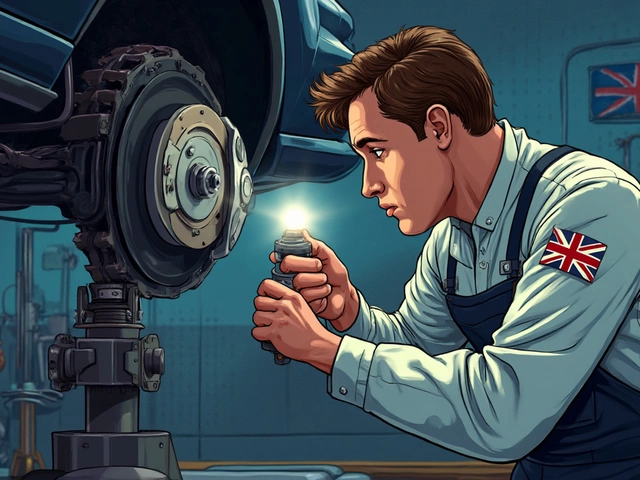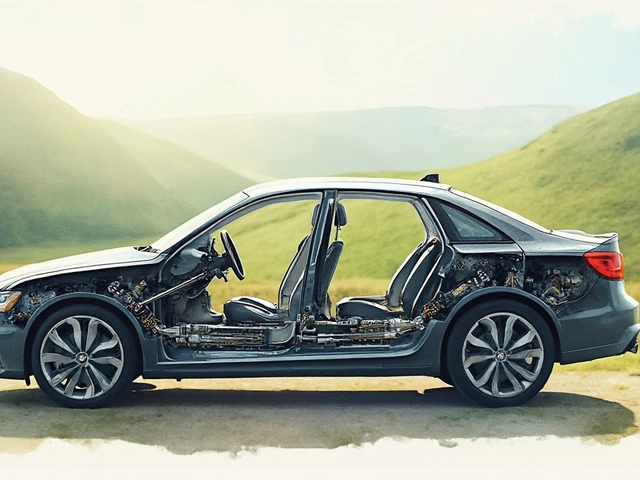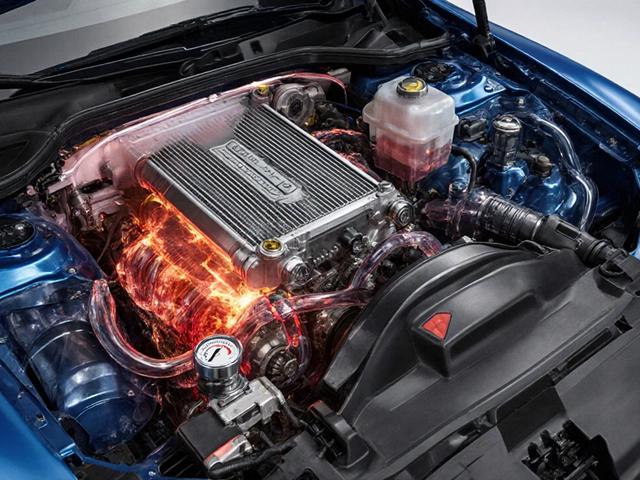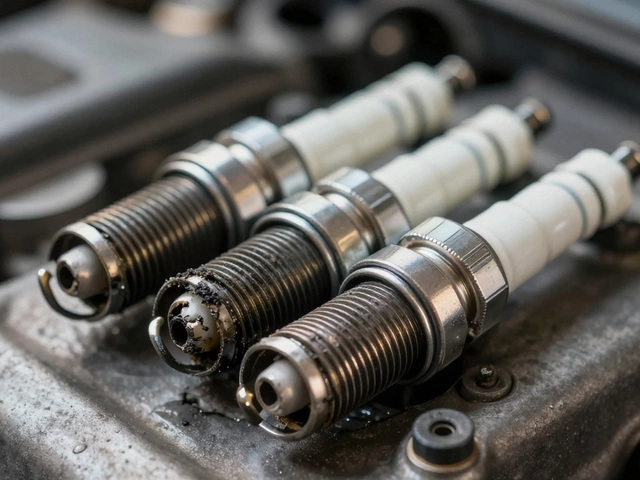Wondering if your car will still manage to chug along with a bad fuel pump? It's a common question that might cross your mind if you're dealing with stalling, sputtering, or difficulty starting the engine. Your car's fuel pump has one primary job: getting the fuel from the tank to the engine. So, when it starts to fail, it's kind of like trying to make coffee without water. Things just don't run smoothly.
Before exploring the nitty-gritty details, let’s understand why a fuel pump is crucial. It provides the engine with the steady supply of fuel it needs to run. Without this component working properly, your engine is basically starved of its essential ingredient—gasoline. The result? Less-than-stellar performance or, even worse, a car that won’t start at all.
- What is a Fuel Pump?
- Signs of a Bad Fuel Pump
- Risks of Driving with a Faulty Pump
- Temporary Solutions
- Prevention Tips
- When to Replace
What is a Fuel Pump?
A fuel pump is like your car’s own little gas delivery service, crucial for getting fuel from the tank to the engine. It's an essential part of the vehicle's fuel system and without it, your car's engine would quickly run out of steam—literally! Think of it as the heart of your car, circulating the fuel to every part of the engine that needs it.
Modern cars usually have electric fuel pumps located inside the fuel tank. This design helps to keep the pump cool and also to avoid vapor lock, which is when fuel evaporates before it reaches the engine. Here's a fun fact: fuel pumps don't just send gas to the engine; they also ensure the pressure remains consistent for optimal engine performance.
Types of Fuel Pumps
There are generally two types of fuel pumps you'll come across: mechanical and electric.
- Mechanical Fuel Pumps: These are typically found in older vehicles and are driven by the engine's motion. They’re like a physical workout for the car, but not always the most efficient.
- Electric Fuel Pumps: These are standard in most vehicles on the road today. They’re more efficient and reliable, providing consistent pressure with less physical effort.
Why It's Important
Without a properly functioning fuel pump, your car might experience difficulty starting, reduced fuel efficiency, or even a complete inability to run. And let's face it, nobody wants to be stranded on the side of the road due to a pump failure.
Quick Tip
To extend the life of your fuel pump, try to keep your gas tank at least a quarter full. Running on empty can cause the pump to overheat since the gasoline acts as a coolant. Simple, right?
Signs of a Bad Fuel Pump
Identifying a bad fuel pump early can save you a heap of trouble. Here’s what to look out for:
1. Engine Sputtering at High Speeds
If your car feels like it's coughing or choking when you're cruising down the highway, it could be a sign that your fuel pump isn’t delivering enough fuel. The engine needs a constant fuel supply to perform well at high speeds, and a failing fuel pump might interrupt this flow.
2. The Car Surges
Does your ride sometimes feel like it’s got a mind of its own, lunging forward even when your foot's steady on the pedal? These car surges are often caused by an inconsistent fuel supply from the pump.
3. Difficulty Starting the Engine
Struggling to get your car started? This could mean your fuel pump isn't creating the necessary pressure to push the fuel to your engine. While a dead battery or other issues might also be to blame, it’s worth checking the pump if this becomes a regular occurrence.
4. Power Loss Under Stress
Notice your car losing power when going uphill or carrying extra weight? The added stress might be too much for a weak fuel pump to handle, leading to power loss when you need it most.
5. Engine Stalling
Random stalls? That's no fun and a pretty clear indicator. An unreliable fuel pump can make your engine stall unexpectedly, and sometimes it won’t start up again right away.
6. Low Fuel Efficiency
A weak pump doesn’t just affect performance—it can make your trips to the gas station more frequent. If you're burning through fuel much faster than usual, it might not all be because of lead foot! A faulty pump can cause poor fuel efficiency.
Keep your eyes (and ears) open for these red flags. Understanding these symptoms could help you catch a failing fuel pump before it leaves you stranded.
Risks of Driving with a Faulty Pump
Driving with a bad fuel pump is more than just an inconvenience; it can lead to some serious issues. It's like ignoring a warning light on your dashboard. So, what exactly are you risking? Let's break it down.
Engine Performance Takes a Hit
When your fuel pump isn't doing its job, your engine might struggle to get enough fuel. This can cause poor acceleration, making simple tasks like merging into traffic a nerve-wracking experience. Stalling is another common issue. Imagine your car suddenly losing power at a busy intersection—it's not just annoying, it's downright dangerous.
Potential Damage Over Time
Continuously running your car with an underperforming fuel pump can lead to bigger, costlier repairs. Without an adequate fuel supply, your engine might overheat, leading to severe damage. Over time, the stress of inadequate fuel can even ruin your engine completely. And let's face it, engine repairs aren't cheap.
Unexpected Breakdowns
If your car is constantly on the verge of breaking down due to a faulty fuel pump, you're at the risk of getting stranded somewhere inconvenient. Imagine being in the middle of a road trip or heading to an important meeting when your car decides it’s had enough. Not a pleasant thought, right?
Fuel Efficiency Drops
Struggling to maintain the right pressure, a bad fuel pump can lead to poor fuel economy. Your car ends up burning more fuel for the same distance, which means more trips to the fuel station. Who wants to pay for more gas because of a problem that can be fixed?
Long-term Costs
No one loves a hefty mechanic bill, but ignoring your fuel pump issues could lead to one. Addressing the problem sooner rather than later can save you from unexpected expenses down the road.
In a nutshell, while it might seem like an annoyance, a bad fuel pump can really impact your car's reliability and your safety. It's one of those situations where a stitch in time truly saves nine—or, in this case, pounds from your pocket and stress from your life.
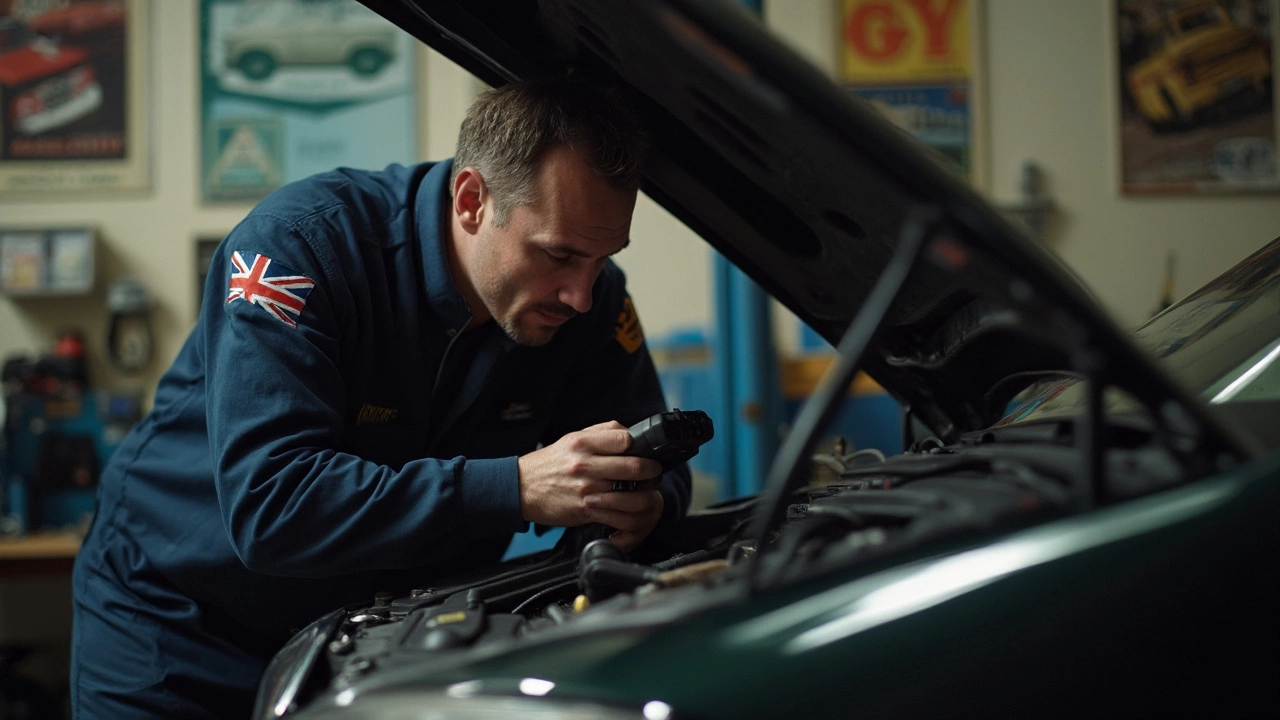
Temporary Solutions
So, you're dealing with a bad fuel pump and wondering how to get your car running again without immediately calling a tow truck or mechanic? Sometimes, quick fixes can buy you extra time before a proper repair. Here are a few things you can try.
Lesser-Known Engine Thump
It might sound bizarre, but gently tapping the fuel tank with a rubber mallet can sometimes work temporarily. This method helps to kickstart the faulty fuel pump into action just long enough to get your car to a safer spot or straight to the mechanic. Remember, this is just a band-aid solution, so don’t put off professional help.
Maintain Full Tank
Keeping your tank at least half-full can sometimes help minimize stress on a struggling pump. With less distance for fuel to travel, the pump might not have to work as hard. It's not a cure, but it could help you limp along until a replacement can be installed.
Clean or Replace the Fuel Filter
Sometimes, what seems like a failing pump is actually a clogged fuel filter. A filter that’s seen better days can mimic pump problems, so it’s worth checking. Cleaning or replacing the filter can temporarily ease the problem until you get to the root of the issue.
Performing these quick fixes can sometimes keep your car running for a bit longer. But remember, driving with a compromised fuel pump can lead to more serious engine problems, costing you more in the long run. If you're consistently facing these issues, it's best to address them sooner rather than later.
Prevention Tips
Keeping your car running smoothly isn't just about reacting to problems; it's about preventing them, especially when it comes to the fuel pump. Here are some down-to-earth tips that can help keep your fuel pump in tip-top shape.
Keep Your Tank Full
Ever heard that you shouldn’t let your fuel tank drop below a quarter? There’s some truth to it. The fuel pump relies on fuel to keep it cool. Driving on fumes consistently might mean that your pump is overheating, which can lead to it wearing out faster. So, keep that tank above the quarter mark whenever possible.
Use Quality Fuel
It might seem tempting to save a few quid on cheaper fuel, but this can be a false economy. Poor quality fuel can lead to deposits that clog up the pump. Stick to reputable brands, and you might save money on avoidable maintenance in the long run.
Replace Fuel Filter Regularly
Your fuel filter is your pump's best mate. It stops gunk from getting into the fuel system. Swap it out as per your car manufacturer's recommendations. A clogged filter can strain the pump, causing it to fail.
Avoid Contaminated Fuel
Water in fuel is a nightmare for your engine and the pump. If you suspect you're getting dodgy fuel, avoid refueling at places that don’t have a good turnaround of product, especially after heavy rain.
- Refuel at stations with high traffic.
- Avoid filling when tankers are offloading as sediments can be stirred up.
Scheduled Maintenance
Regular maintenance can spot potential issues before they become big problems. A thorough check-up will also cover your car's fuel system, ensuring everything's running like a dream.
By taking these simple steps, you can save yourself from unexpected breakdowns and costly repairs, keeping your car and its engine purring as it should. Prevention is always better than cure!
When to Replace
So, you're figuring out whether it's time to bid farewell to your car's fuel pump? It's no small matter. Replacing a bad fuel pump is something you shouldn't put off for long. Here's how to know it's time to make the switch.
Recognizing the Red Flags
Firstly, pay attention to what your car is telling you. Is it struggling to start, as if it's on strike until it gets a refill? Or maybe it just stalls suddenly, like someone yanked the power cord out? These are classic signs your fuel pump might be on its way out.
Another tip-off is when you notice a drop in fuel efficiency. If your trusty car is guzzling more fuel than usual, you should ask yourself if the fuel pump is the culprit.
Listen to the Sounds
Your ears are a good tool too. A whining noise coming from the fuel tank, especially when the car is idling, isn't something normal. It's your pump sending out an SOS.
When to Say Enough is Enough
Alright, if you're seeing multiple symptoms cropping up, your best bet is not to wait any longer. Putting off the fix can lead to more problems down the line, and nobody wants that.
Consider the Age and Mileage
Oh, and don’t forget—if your vehicle is clocking up the miles like a marathon runner, it might be time to consider replacement. Fuel pumps don't last forever, usually around the 100,000 mile mark for many vehicles, they're likely to raise the white flag.
So, if your car keeps producing these telltale symptoms, get it checked out pronto. Swapping out a faulty fuel pump not only keeps your car running smoothly but also saves you from unexpected roadside headaches.



